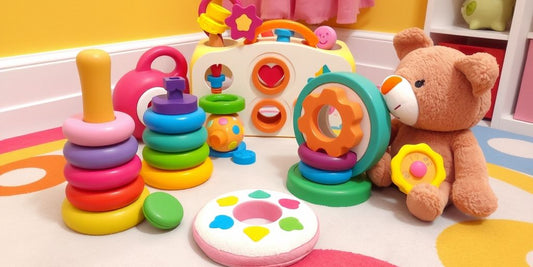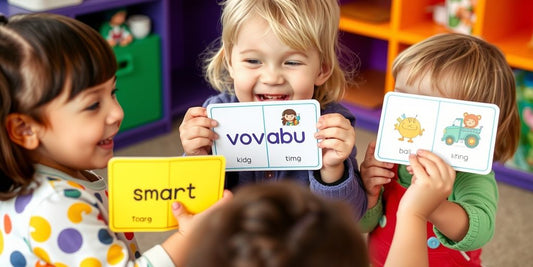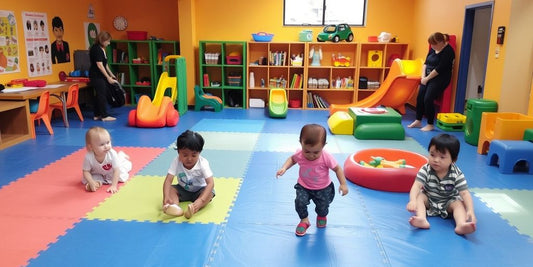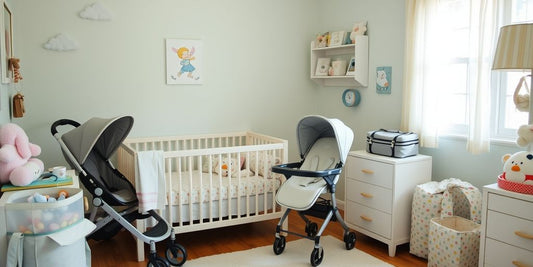Creating a strong bond with your newborn is one of the most important steps as a new parent. This connection not only helps your baby feel loved and secure but also supports their mental and physical development. While bonding might come naturally to some, others might need a bit more time and effort. Here, we explore various ways to establish and nurture this vital relationship.
Key Takeaways
- Bonding with your newborn is crucial for their development and emotional well-being.
- Simple actions like skin-to-skin contact, responding to cries, and making eye contact can significantly strengthen your bond.
- Understanding and responding to your baby's cues helps build trust and communication.
- Overcoming challenges such as postpartum depression is essential for both the parent's and baby's health.
- Involving other caregivers and creating a calm environment can enhance the bonding experience.
Understanding the Importance of Bonding
Why Bonding Matters for Development
Bonding is the intense attachment that develops between parents and their baby. It's crucial for the emotional, mental, and physical development of the child. When your baby gets what they need from you, like a smile, a touch, or a cuddle, they feel the world is a safe place to play, learn, and explore. This lays the foundation for development and well-being throughout childhood.
Emotional and Physical Benefits
Bonding helps your baby grow mentally and physically. For example, repeated human contact, like touching, cuddling, talking, singing, and gazing into each other's eyes, makes your baby's brain release hormones. These hormones help your baby's brain to grow. And as your baby's brain grows, your baby starts to develop memory, thought, and language. Plenty of cuddle time and skin-to-skin contact not only helps with bonding but also reduces stress and crying and helps babies sleep better.
Long-term Impact on Relationships
The strong ties between parents and their child provide the baby's first model for intimate relationships and foster a sense of security and positive self-esteem. Parents' responsiveness to an infant's signals can affect the child's social and cognitive development. Studies have shown that babies who received a near-immediate, tender response to their cries were more poised, patient, and trusting of their mother when tested at one year of age.
Effective Ways to Bond with Your Newborn

Skin-to-Skin Contact
Holding your baby close, skin-to-skin, is one of the simplest and most effective ways to bond. This practice not only helps regulate your baby's body temperature but also promotes emotional connection. Try to incorporate skin-to-skin time during feedings or when comforting your baby.
Responding to Cries
When your baby cries, it's their way of communicating a need. By responding promptly, you show your baby that they can trust you. This builds a sense of security and strengthens your bond. Remember, babies cry for various reasons, and it's not a reflection of your abilities as a parent.
Talking and Singing
Talking and singing to your baby helps them recognize your voice and feel comforted. You can narrate your day, tell stories, or sing lullabies. The rhythm and tone of your voice can be soothing, and this interaction helps in language development.
Making Eye Contact
Making eye contact with your baby during feedings or playtime helps them feel connected and loved. It also aids in their social and emotional development. Look into your baby's eyes and smile; this simple act can make a big difference in your bonding experience.
Recognizing and Responding to Your Baby's Cues
Understanding Newborn Body Language
Babies communicate through their body language. Watch for signs like rubbing eyes, turning away, or arching their back. These cues can tell you if they are tired, hungry, or need a break. Learning to read these signals helps you meet their needs more effectively.
Signs Your Baby Wants to Connect
Your baby might show they want to connect by making eye contact, cooing, or reaching out to you. These are clear signs they are ready for interaction. Responding to these cues with a smile or gentle touch can strengthen your bond.
How to Respond Appropriately
- Observe: Pay attention to your baby's cues. Are they rubbing their eyes or turning away? These might be signs they need rest.
- Respond: If your baby is cooing or reaching out, engage with them. Talk, sing, or play a simple game like peek-a-boo.
- Be Consistent: Always respond in a similar way. This helps your baby feel safe and understood.
Spending time understanding and responding to your baby's cues can create a strong foundation for their emotional and physical well-being.
Remember, every baby is unique. What works for one might not work for another. Keep observing and adjusting your responses to find what best suits your little one.
Overcoming Challenges in Bonding

When Bonding Takes Time
Bonding with your newborn might not happen instantly, and that's okay. Every parent and baby are different. Sometimes, it takes a while to develop that deep connection. Be patient with yourself and your baby. Remember, it's a journey, not a race.
Dealing with Postpartum Depression
Welcoming a new baby is a life-changing event filled with joy, but it can also bring unexpected emotional challenges. Postpartum depression can make bonding difficult. If you feel overwhelmed, sad, or disconnected, it's important to seek help. Talk to your doctor or a mental health professional. You're not alone, and there are resources available to support you.
Seeking Support and Help
Building a support system is crucial. Don't hesitate to ask family members and friends for help with daily tasks like housework, meals, and laundry. This can free up your time and energy to focus on bonding with your baby. Additionally, joining parenting classes or support groups can provide valuable advice and emotional support from others who understand what you're going through.
Bonding is a complex, personal experience that takes time. There's no magic formula, and it can't be forced. As new parents get more comfortable with their baby and routines become more predictable, they'll feel more confident about all the amazing aspects of raising their little one.
Involving Other Caregivers in Bonding
Role of Grandparents and Siblings
Grandparents and siblings can play a crucial role in bonding with your newborn. Encourage open communication between you and your newborn's caregiver. This helps them feel welcome and confident in their role. Grandparents can share special moments like feeding or reading to the baby, while siblings can engage in simple activities like singing or playing.
Benefits of Multiple Attachments
Babies can form attachments to multiple caregivers, which helps them learn about trust and closeness. This can make it easier for you to manage other responsibilities like work or household chores. It also provides your baby with a sense of security and comfort from different people.
Ensuring Consistency in Care
Consistency is key when multiple caregivers are involved. Make sure everyone is on the same page regarding routines and responses to the baby's needs. This ensures that your baby receives consistent care and feels secure. Let caregivers know they can ask questions and share their observations to better understand your baby's needs.
Creating a Bonding-Friendly Environment
Setting Up a Calm Space
Creating a calm space for your newborn is essential. A peaceful environment helps your baby feel safe and secure. Keep the room dimly lit and free from loud noises. Soft, neutral colors can also contribute to a soothing atmosphere. Make sure the space is clean and organized to avoid any unnecessary stress.
Using Soothing Music and Sounds
Playing gentle music or nature sounds can be very calming for your baby. Consider using a white noise machine to mimic the sounds they heard in the womb. This can help them relax and sleep better. You can also sing lullabies or play soft instrumental music to create a serene environment.
Incorporating Gentle Touch and Massage
Gentle touch and massage can significantly enhance your bond with your newborn. Use baby-safe oils and gently massage their arms, legs, and back. This not only helps in relaxing your baby but also promotes better sleep and digestion. Regular touch and massage can make your baby feel loved and cared for.
Conclusion
Building a strong bond with your newborn is a journey that takes time, patience, and lots of love. Remember, every baby is different, and so is every bonding experience. The key is to be present, responsive, and loving. Whether it's through cuddling, talking, or simply being there when your baby needs you, these small acts of love and care lay the foundation for a secure and happy future. So, take a deep breath, enjoy these precious moments, and know that you're doing an amazing job as a parent.
Frequently Asked Questions
How important is bonding with a newborn?
Bonding is crucial for a newborn's growth. Even if you don't feel a strong connection right away, being attentive to your baby's cries is the first step in building relationships.
How can I bond with my baby?
Building a bond with your newborn is simple. Activities like touching, cuddling, talking, making eye contact, and singing can help you connect.
What should I do if bonding takes time?
It's normal for bonding to take time. Spend time with your baby, see the world from their perspective, and be flexible and responsive to their needs.
How do I involve other caregivers in bonding?
Other caregivers like grandparents and siblings can also bond with your baby. This helps your baby learn about trust and makes it easier for you to manage other tasks.
What can I do if I face challenges in bonding?
If bonding is challenging, seek support and help. Talk to healthcare providers, join parenting classes, and share your feelings with other new parents.
How can I create a bonding-friendly environment?
Set up a calm space, use soothing music and sounds, and incorporate gentle touch and massage to create a bonding-friendly environment for your baby.









